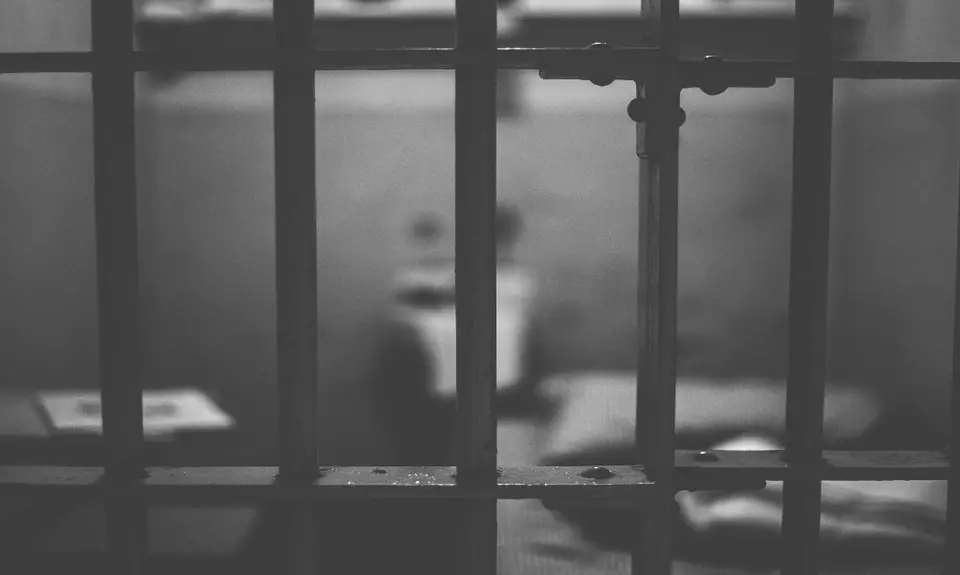“Confirmed Judges, Confirmed Fears” is a blog series documenting the harmful impact of President Trump’s judges on Americans’ rights and liberties. Cases in the series can be found by issue and by judge at this link.
Trump Eleventh Circuit judge Britt Grant cast the deciding vote in a 2-1 ruling that vacated a preliminary injunction that temporarily stopped officials from isolating psychiatrically disabled women in a county jail under horrific conditions while a lawsuit challenging that conduct remained pending, claiming that the federal Prison Litigation Reform Act (PLRA) required any preliminary injunction to be dissolved after 90 days. The July 2021 decision was in Georgia Advocacy Center v Jackson.
The nonprofit Georgia Advocacy Center filed a federal lawsuit in 2019 challenging the constitutionality of Fulton County jail’s practice of “confining psychiatrically disabled female[s]” in “isolation cells (called ‘mental health pods’)” for “months at a time” in “unsanitary conditions.” The dissent elaborated on this short description by the majority:
“Women in the mental health pods are subject to long-term isolation in horrific and repulsive conditions. Women have ‘been found lying catatonic on the floor, screaming unintelligibly, banging their heads against cell walls, living in cells with feces smeared on the walls or urine pooled on the floors, and enduring extraordinary squalor as their mental health deteriorated, causing harm up to and including death.’ Despite the medical recognition that isolation for seriously mentally ill people ‘can be as clinically distressing as physical torture,’ ….women with the most serious psychiatric disorders at South Fulton Jail are held in isolation on a virtually around-the-clock basis.”
After conducting a three-day evidentiary hearing and considering other evidence, the federal district court entered a preliminary injunction that ordered officials to provide at least four hours of out-of-cell time five days a week to women in a “mental health pod” and to implement a plan for improving sanitary conditions and providing out-of-cell therapeutic activities. The court then made additional “particularized findings” required by the PLRA where such relief is ordered and sought to expedite the case.
Around three weeks after the PLRA-specific order and around three months after the initial preliminary injunction order, jail officials appealed the injunction to the Eleventh Circuit. Rather than ruling on the merits of the preliminary injunction , however, the 2-1 majority including Trump judge Grant ruled that the preliminary injunction had “expired by operation of law,” vacated the injunction, and sent the case back to the district court with no change to the conditions at the jail as the lawsuit continued.
Specifically, the majority maintained that the PLRA requires that no federal preliminary injunction concerning prison conditions can last more than ninety days, by which time a court is required to enter a final order. This conclusion was based on PLRA language that states that any such preliminary injunction shall “automatically expire” in ninety days “unless the court makes the findings required” specifically by the PLRA for such an injunction “and makes the order final before the expiration of the 90-day period.” Although the majority acknowledged that “90 days is a short amount of time to reach a final decision on the merits of a complex civil case about prison conditions,” it claimed “that is what the text” of PLRA “calls for.” The majority rejected the plaintiffs’ interpretation that the 90 days refers to a deadline for making the preliminary injunction order “final” by entering the specific findings of necessity required by the PLRA, as occurred in this case. It claimed that although such an interpretation “is plausible” and avoids the “linguistic awkwardness” that its construction could produce, its limited interpretation was more consistent with the PLRA’s restrictive “model for injunctive relief” in prison cases.
Judge Beverly Martin strongly dissented. Although she acknowledged that the PLRA does significantly limit injunctive relief in prison cases, she pointed out that the majority was ignoring what the statute “chooses not to do”—that is, to state clearly that the only way to allow a preliminary injunction against horrific prison conditions to last more than 90 days is for the court to enter a “final order” of permanent injunctive relief in that very short time frame. The statutory phrase “makes the order final” does not mean the same thing as entering a “final order” in the case, she explained, since the law clearly contemplates procedures as in this case to make a preliminary injunction order final and elsewhere uses the term “final order” to refer to a final order of permanent relief or dismissing a case. Even the majority, she remarked, admitted that there was “some merit” to the “more natural” interpretation that the ninety days refers to the deadline for making the preliminary injunction order final by entering the specific findings required by PLRA.
The majority’s ruling, Martin continued, “prevents preliminary injunctions from serving their core equitable purpose of protecting plaintiffs from the substantial threat of irreparable injuries while their claims are pending,” regardless of “how long the case takes to litigate.” In this case in particular, she went on, the horrific conditions and consequences describe above “will continue to happen while the case is pending” without a preliminary injunction against them.
Judge Martin concluded that the result made possible by Trump judge Grant’s deciding vote – leaving incarcerated people in “vulnerable, likely unconstitutional situations without relief during the pendency” of lawsuits challenging those conditions – is “not what the language of PLRA requires” and cannot be “reconciled with the equitable rationales for the preliminary injunction” in the first place. Hopefully the district court in this case can find some way around this artificial judge-created barrier, even if it requires repeated preliminary injunctions as the case goes forward. The case further emphasizes the importance to our fight for our courts for the Senate to promptly confirm Biden nominees to our federal courts who truly respect the rights of all and the proper interpretation of Congressional laws in order to counteract the votes of Trump judges.
